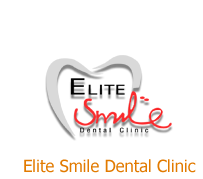
Tooth Extraction
There are a number of reasons why a tooth extraction is needed:
- the tooth is severely decayed
- advanced periodontal disease ("gum disease")
- the tooth may be broken such that it cannot be repaired
- other teeth may need removal because they are poorly positioned in the mouth (such as impacted wisdom teeth)
- preparation for orthodontic treatment ("braces")
Procedure for Tooth Extraction
1. First Evaluation and diagnosis
- An oral examination to determine if a tooth extraction is really warranted
- X-ray(s) may be taken of the tooth to evaluate both the internal aspects of the tooth, the tooth root and bone
- Relevant medical histories are recorded. Do ensure that you report to your dentist any problems with any previous tooth extractions, bleeding problems, medical conditions or allergies to medications and supplements
2. Site tooth preparation
- Local anesthetize is given to "numb up" the tooth, jawbone and surrounding gums
3.Tooth removal
Recovery Expectations
For simple normal tooth extraction, the patient is simply sent home and the tooth site left to heal. Bleeding should stop after the first few hours. You may follow your regular daily activities, avoiding excessive exertion typed of activities such as exercising or sunbathing.
Postoperative care Instructions after Tooth Extractions
- Bite the gauze firmly for a full 1-2 hour to stop bleeding. If bleeding persists, change to new gauze and continue biting firmly until the bleeding stops
- Do not use mouthwash for 24 hours after oral surgery
- If mild bleeding occurs, hold cold salt water in the mouth until it warms to body temperature
- Do not rinse for 12 hours
- After 12 hours you may rinse with a solution of tea spoonful of salt in a glass of warm water
- Brush your teeth as usual, but do not brush the wound
- Take only soft, non-spicy and cold foods, if possible, for 2- 3 days
- Avoid smoking and alcohol
- Mild pain can be controlled with pain relieve medications as directed by your dentist
Effects of Missing Teeth
When a tooth is missing its neighboring teeth will tend to shift, sometimes significantly, which in turn can have a major impact on your dental health. Even the removal of a single tooth can lead to problems related to your chewing ability, problems with your jaw joint, and the problem of a possibility that the surrounding teeth of predispose the teeth may shifted. Look for Benefits of Prosthetics at

